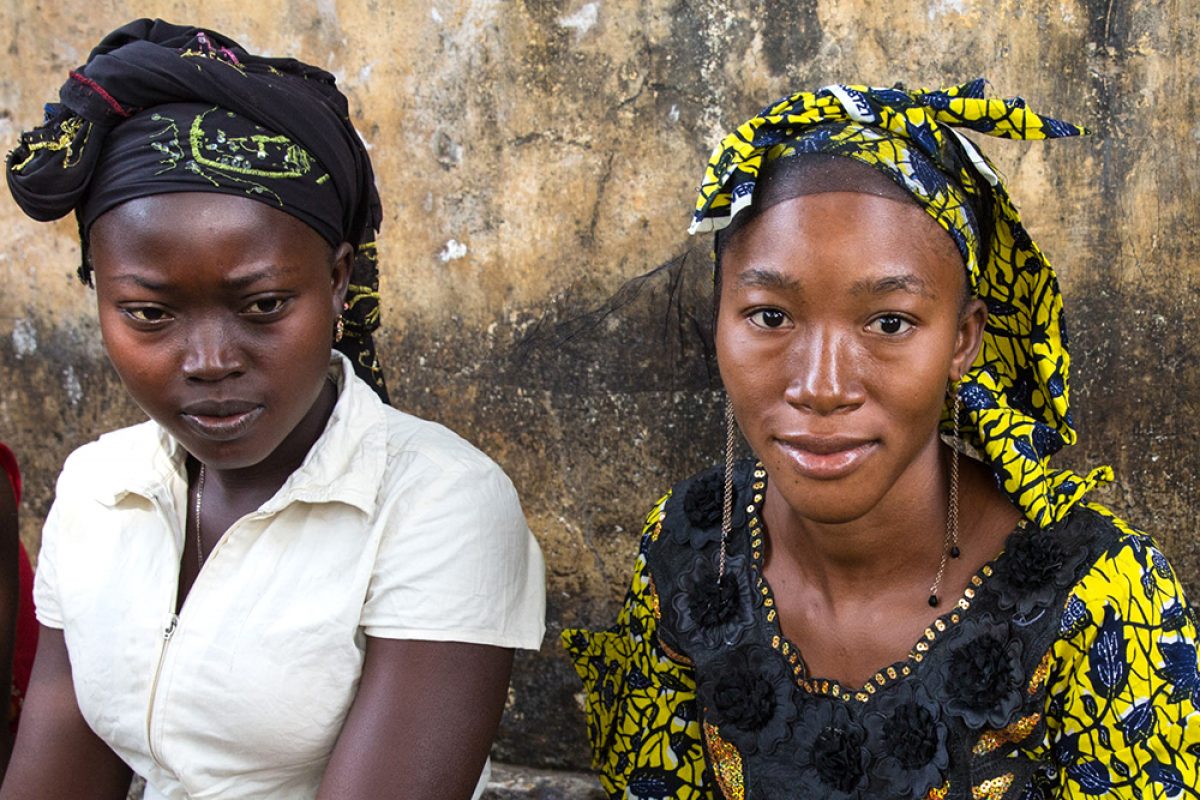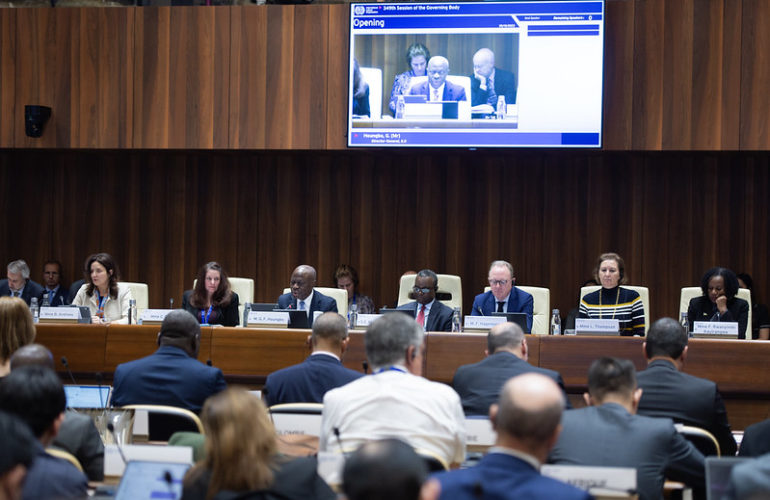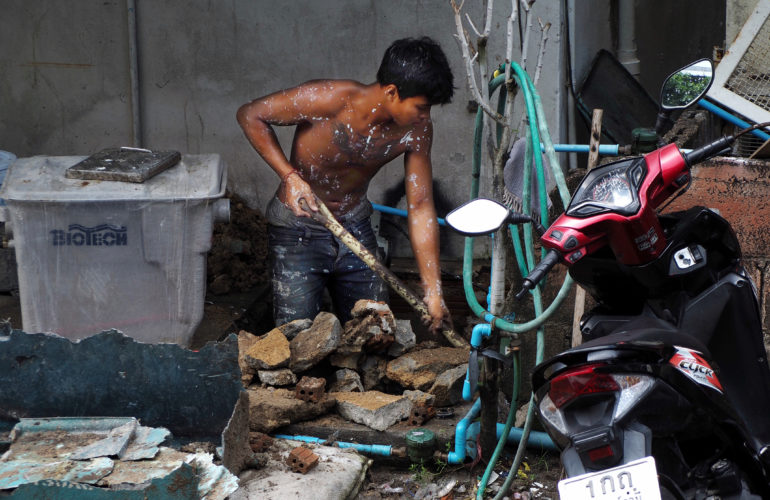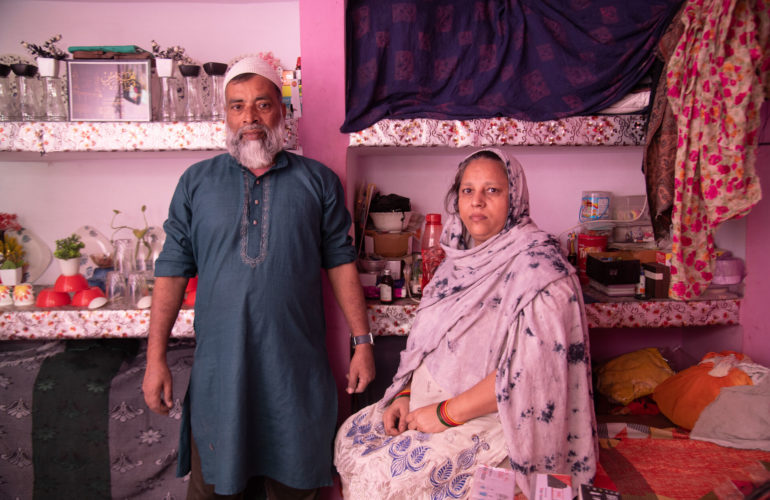“Like I Didn’t Exist” – The Exploitation of West African Migrant Workers
“I would have never believed I was falling into a trap,” says Aminata, a young woman who left Guinea after receiving an offer of good employment abroad. Instead, she became a victim of abuse, slave-like conditions and harassment. Her fate is shared by countless young women from West and East Africa.

When there are few or no work opportunities, traveling abroad to find a job becomes an attractive option. However, especially in the case of low-skilled workers, illegal and unregulated recruitment practices can lead to exploitation and human trafficking.
Across West and East Africa, young men and especially young women are attracted by enticing employment opportunities in Gulf countries. Though reliable figures do not exist, a UN agency says that there are over 3 million migrant domestic workers in Saudi Arabia alone. In many cases, they find themselves trapped in slave-like situations in jobs they didn’t agree to and for which they are not adequately or not at all paid.
In the context of a 9-10 May multi-stakeholder workshop on illegal recruitment practices organized by the International Catholic Migration Commission (ICMC) Europe office in Conakry, Guinea, ICMC Project manager Agnès Bertrand spoke with two young women who shared their experiences of being trafficked as domestic workers in Kuwait.
Leaving Guinea
Aminata* and Kadiatou* are two 27-year-old women from Conakry. Although they had both completed professional training and had worked in some on-and-off jobs, they had a hard time finding steady employment in their own country. Which is why, when receiving offers of good jobs abroad, they immediately accepted.
They would only have to take care of their passports; the intermediaries – the traffickers – would provide flights and visas. These arrangements cost Aminata 500 euros and Kadiatou 1,500 – pretty standard fees, they say.
Kadiatou signed a work contract as a domestic worker in Kuwait with a salary equivalent to 250 euros per month, while Aminata was supposed to work in a restaurant in Turkey.
When Aminata got her visa, it was actually a photocopy of a Kuwaiti visa written in English and Arabic. “I didn’t understand, but didn’t ask any questions,” she recalls. “I didn’t sign a contract. I left a week after meeting the man who offered the job to me. He was very nice. I would never have believed I was falling into a trap.”
At Conakry airport, the young women were escorted by police officers to the boarding gates, where other women were waiting. “The cops were obviously in cahoots with the traffickers,” Kadiatou says. Her flight went from Conakry to Ivory Coast and then to Ethiopia and Kuwait. The group of women grew bigger along the route. Not everyone was bound for the same destination however. “From Addis Ababa, some went to Kuwait, others to Lebanon and others to Iraq,” says Kadiatou.
Life in Kuwait
Aminata never made it to Turkey, but landed in Kuwait City, like Kadiatou. They were picked up by police officers and led to an area where representatives of employment agencies were waiting for them.
“We didn’t know if they were legal or not. I began to feel afraid, especially when they took my passport,” says Kadiatou. Upon seeing the situation on her arrival, Aminata managed to hide her phone. “That’s what saved me,” she says.
She was brought to her employer’s house early in the morning and had to start working right away. She ended up taking care of the children and doing all the domestic work while being treated “like I didn’t exist.”
“I had to work from 6:00 am until 1:00 am,” recalls Aminata, “and they never paid me.” “I had to steal food. I even had to search the garbage to be able to eat. Nothing was planned for me. It irritated my boss to see me eating. I had to hide to eat.”
Although the family was well-off and religious, Aminata had no chance or time to pray. Communication with her employers was very difficult. “They spoke only Arabic and English. We communicated with our hands.”
Kadiatou was brought to her employment place – another wealthy Kuwaiti family’s house – late at night, only to be woken up at 5:00 am by a man screaming at her. Another girl from the Ivory Coast who also worked there was very supportive. Kadiatou had to do all the domestic work for the big family, while being unable to leave the house. “I was a prisoner,” she says.
Due to the harsh working conditions, Kadiatou got sick and had to be taken to the hospital. “That was the only time I went out,” she explains. Unable to work when she left the hospital, she was taken to the house of the woman who ran the employment agency. Her former employer used her salary to pay the hospital bill. “I later realized she didn’t have the right to do that,” says Kadiatou. “In any case, she never paid me.”
Going back home
Aminata was saved by the phone she had hidden. She called her parents who in turn called the Guinean consul in Kuwait. “I escaped one morning at 7:00 am. The consul was waiting for me at the end of the street.”
She was then referred to a transit camp where victims of trafficking are hosted until they can return to their home countries. The Kuwaiti government opened some shelters a couple of years ago to cater to women who flee exploitative working conditions.
Both Kadiatou’s and Aminata’s parents had to pay for their daughters’ flight home, as there is little or no support to victims of trafficking, not even when they want to return home. Both young women had spent about two months in Kuwait.
Back home, they decided to file a complaint with the Guinean authorities. However, they don’t know what steps, if any, the authorities have taken. All they know about their traffickers are rumors.
In Guinea, the protection framework to address this type of situation is minimal to non-existent. This was one of the issues raised at the ICMC MADE (Migration and Development) West Africa workshop in Conakry, which followed a similar one in Dakar, Senegal. One of the goals of the MADE West Africa program is to protect the rights of migrant workers seeking jobs abroad.
The experience traumatized the young women, and with no psychosocial support available to returnees, it is difficult to start all over again. Aminata says she is now afraid to travel. She also feels guilty. “I am ashamed of what happened to me, also because I left and I failed.”
Kadiatou is angry. She says the Guinean authorities did not protect her. “The State must listen to young people like us and understand what drives us to leave and find ourselves in such a situation.”
However, in spite of the many returnees who share their terrible experiences, there are still many others who want to leave, she says. “When we tell them about our experiences, they say: ‘But that’s Kuwait. Elsewhere it’s different’.”
Both women are currently unemployed. Kadiatou is considering leaving the country again.
* Names have been changed to protect the identities of the interviewees.
- To learn more about labor migration between African and Gulf countries, read the report by the Migration and Development Civil Society Network (MADE) “Mapping the challenges: Labour Migration from West and East Africa to the Gulf and MENA regions”


